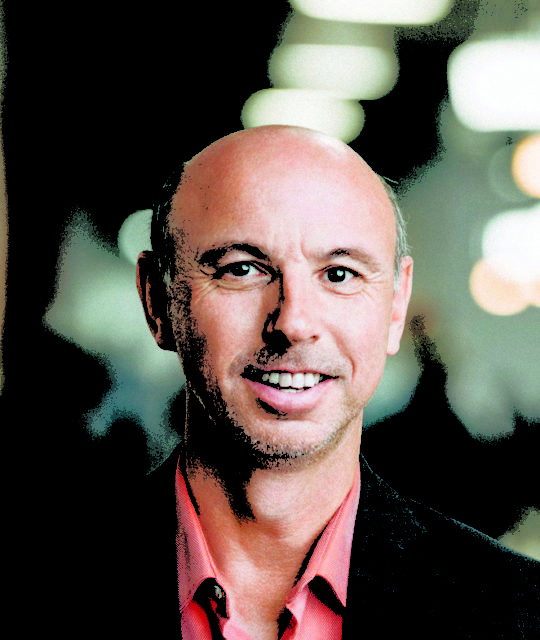The late, great David Bowie made a very prescient observation about the music industry way back in 2002: ‘’Music itself is going to become like running water, or electricity.” Judging from recent automotive industry headlines, he may have predicted the future of cars as well.
Faraday Future, for example, generated a huge amount of interest at CES this year with its futuristic race car, but a bigger story got lost in all the hype — their business model ideas are just as fluid and innovative as their vehicle designs.
Gabe Weisert spoke with Nick Sampson, SVP of Product Research and Development, at Faraday Future.

You’ve said before that your business model isn’t based around moving a car out of a dealer. You’ve made an analogy to smart phones, where the revenue starts once you get the device in the owners’ hands. Could you expand on that?
Well, there’s two ways to think about that. The first is a traditional ownership model — we sell one of our cars to someone, and the vehicle is theirs to use as they please. But let’s contrast that with how your phone or your TV works.
To a mobile phone company, it’s not the money you make on selling a phone that matters, it’s the number of revenue screens that are possible once the product is in the consumer’s hands: apps, music, downloads.
Similarly, once a smart TV is in someone’s lounge, there are all sorts of new potential revenue opportunities: movie rentals, on-demand sporting events, games, shopping, etc. So it’s not just about making money by selling someone a product. In fact, you could even make a bit more money down the road by financing that purchase.
Which isn’t how most car manufacturers are operating today.
That’s right. They’re making their money on the margin of the big up-front purchase, as well as a few secondary streams like maintenance plans. But basically all the money is made at the point of sale.
Contrast that with a phone or TV, where the business model is just constantly changing. Constantly. There’s no predefined pact or how many movies you download on demand. Things you decide to watch. It just varies.
Secondly, we think that in the future a significant portion of the population may not be interested in owning a vehicle — they’ll just want to have access to mobility. They’ll want to subscribe to a mobility service.
We’re already starting to see that with Uber and Lyft.
That’s right. We also get a lot of online comments with the same sentiment: I’m going to get rid of my car, I don’t need to have it sitting there. I live in an urban environment where it takes up space. It’s difficult to use. All I really want is mobility.
So you could sign up for Faraday, the same way you would sign up for Spotify, or Netflix?
That’s very well the idea. Only a portion of the population may want that at first. But over time, perhaps more and more will.
Do you think that there’s a generational aspect to that trend?
I think partly it’s that, but I don’t think that it’s necessarily exclusive to younger people. I think that over time, we’ll find that people who are older will have the same inclinations. Perhaps they don’t get to travel around too much right now, and they’d like to, but they don’t feel safe or comfortable driving. I know my parents as they get older, they don’t like driving into city center. They find it stressful and inconvenient, and the quality of public transport can vary.
Going back to the phone analogy — aren’t you also talking about connected lifestyles in general?
Yes. Look, your phone looks very similar to my phone, but what makes it yours is that it has all your things in it — your apps, your contacts, your background picture.
Now we can have that same situation with vehicles. If you’re signing up for our mobility service, we’ll make sure that we design the cars in ways that help them feel personal to you. Even though it’s only just turned up for you, and that’s the first time you’ve ever actually been in that particular vehicle, it will feel like that’s the one you get into every day.
Why? Because the dashboard screens will look familiar.You’ll be looking at your own content layer, just like with your phone. The seat positioning will feel familiar, as well as the mirrors, the air conditioning, the maps, your driving history. It’ll actually be like as if your own life has suddenly come alive inside the car. That particular car may be new to you, but it’ll feel instantlyfriendly and familiar.
Faraday will be making all sorts of vehicles, correct?
Yes. The platform concept has enabled us to deliver a variety of vehicles in the future. We’ve got to get the first one out, then people will gain trust and confidence and interest in the company. We want to be able to respond quickly to the coming demands of the consumers. And in a subscription-based model, we’ll be able to determine those customer demands very quickly — it may just be a particular style of car. And we’ll be able to respond to those preferences very quickly as well.
Fascinating. Good luck!
Thank you.